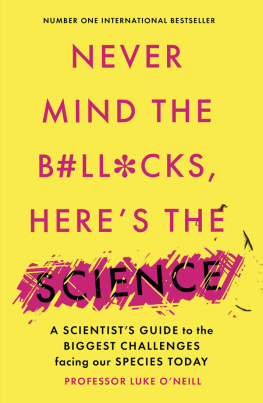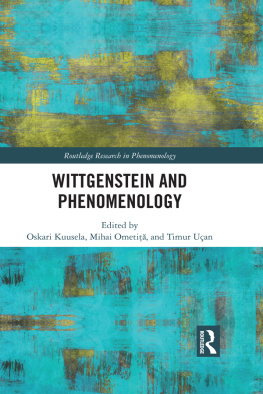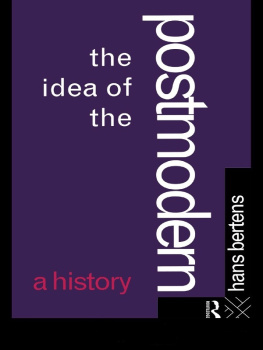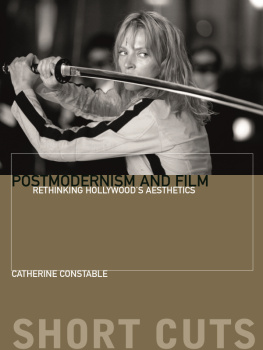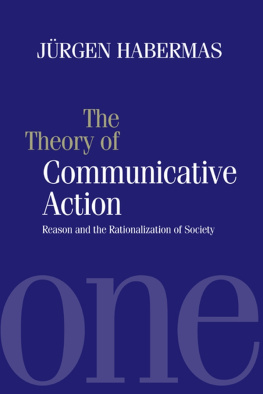The poverty of postmodernism
In this book John ONeill examines the postmodern turn in the social sciences. He rejects the current celebration of knowledge and value relativism on the grounds that it renders critical reason and common sense incapable of resisting the superficial ideologies of minoritarianism that leave the hard core of global capitalism unanalysed. From a phenomenological standpoint (Husserl, Merleau-Ponty, Schutz, Winch), ONeill challenges Lyotards post-traditionalist reading of Wittgenstein and Habermas in order to defend commonsense reason and values that are constitutive of the everyday life-world. In addition he argues from the standpoint of Vico and Marx on the civil history of embodied mind that the post-rationalist celebration of the arts of superficiality undermines the recognition of the cultural debt each generation owes to past and post-generations. In a positive way ONeill develops an account of the historical vocation of reason and of the charitable accountability of science to commonsense that is necessary to sustain the basic institutions of civic democracy. This book will be of interest to anyone concerned to understand the continuing relevance of Marx, Weber, Husserl and Schutz to the debates around Wittgenstein, Lyotard, Foucault and Jameson.
John ONeill is Distinguished Research Professor of Sociology, York University, Toronto.
SOCIAL FUTURES
Series editor: Barry Smart
Also in the series:
Modern Conditions, Postmodern Controversies
Barry Smart
The Future that Failed
Johann P. Arnason
The poverty of postmodernism
John ONeill
London and New York
First published 1995
by Routledge
11 New Fetter Lane, London EC4P 4EE
This edition published in the Taylor & Francis e-Library, 2004.
Simultaneously published in the USA and Canada
by Routledge
29 West 35th Street, New York, NY 10001
Copyright 1995 John ONeill
All rights reserved. No part of this book may be reprinted or reproduced or utilized in any form or by any electronic, mechanical, or other means, now known or hereafter invented, including photocopying and recording, or in any information storage or retrieval system, without permission in writing from the publishers.
British Library Cataloguing in Publication Data
A catalogue record for this book is available from the British Library
Library of Congress Cataloguing in Publication Data
ONeill, John
The poverty of postmodernism/John ONeill.
p. cm.(Social futures)
Includes bibliographical references (p.) and index.
1. PostmodernismSocial aspects. I. Title. II. Series:
Routledge social futures series.
HM73.055 1995
303.4dc20 947260
CIP
ISBN 0-203-42966-4 Master e-book ISBN
ISBN 0-203-73790-3 (Adobe eReader Format)
ISBN 0-415-11686-4 (hbk)
ISBN 0-415-11687-2 (pbk)
For my son
Gregory
Figures and tables
FIGURES
Four types of strategy
Medicalization of deviance/conformity
Body politic: body sites, body discourses
TABLES
A typology of modes of individual adaptation
Schematic tabulation of societal inputs and outputs
Acknowledgements
My books begin with my graduate students at York University in the Monday night seminar on Contemporary Social and Political Thought. These arguments have travelled to other universities, from Toronto to Cambridge, Edinburgh, Copenhagen, Groningen and Tilburg; then to Arizona, Kansas, South Carolina, Georgia, Indiana, Florida and Hawaii; in Japan they were presented at universities in Tokyo, Niigata, Kyoto and Hiroshima. At every stage I benefited from generous discussion and hospitality. In addition, the arguments have been subject to the usual journal scrutiny and editorial comments. Their final shape owes a great deal to the advice of Barry Smart at the University of Aucklandso, once again, they have another chance to travel.
John ONeill
Toronto
Introduction
The two politics of knowledgealterity and mutuality
It is a conceit of postmodernity that it stands on a point of the highest morality achieved through the erosion of all previous moral institutions. Today we are told to jettison the old fashioned belief in unique values that cannot be exhausted by their practice. We consider the practice of any belief constitutes an ultimate value while nevertheless holding that such values are entirely expended in their use. In this, we are wholly ruled by prejudice and politics while believing that never before has the human mind been more open nor the human community more close to the hearts of men or of women. At the same time, we are asked to believe that human beings are now so speciated by gender and racethough we are silent about classthat there can be no universal knowledge, politics or morality. These ideas have not grown up among the masses defeated by the empty hopes of our kind. It is not the masses who have sickened of the injustice and exploitation that grinds their lives, weakens their families, starves their children, murders and terrorizes them each hour of the day and night in every corner of the world. No, it is not these people who have abandoned idealism, universalism, truth and justice. It is those who already enjoy these things who have denounced them on behalf of the others. The two sides, of course, never meet. Each remains on the other side of the great wall of class upon which there flickers the imagery of mass culture, on one side, and the imagery of lite, professional culture, on the other. No one appears to own the wall. This is why those on each side of the wall see only themselves in their own cultures. Worse still, since the masses have no reason to believe they own anythinglet alone the wallthose on the lite side have persuaded themselves that the wall is culture rather than property. This idea appeals to the cultural lite since what they ownas well as what they disownis largely symbolic capital, especially language and its professional practice.
Nowadays ideas circulate like fast-food and like it are garbaged in favour of the next idea almost without assimilation. To accommodate to such processing, intellectuals are prepared to consider themselves bodies without organs, as migratory bundles of pleasureseeking drives, almost as aimless as those mindless youths whose soft bodies drift through the deafening arcades of pinball machines. The latter devour one another in a parody of the passive self-destructive anger of the consumer who will never knowingly or competently produce anything in which they can mirror self-respect. Dignity is a demand that such lives can only redeem in their struggle with techno-dying. It is a demand that marks their exit once and for all from a society that is incapable of celebrating their birth. In between, living and dying are the slow points of degradation experienced in a sensate culture whose hostility towards itself is the source of all our evils. In such circumstances, to stand for an idea appears to be as foolish as to expect our bread to be bread. What matters, we are told, is what goes with what but not at all what is what. The latter question stalls the merry-go-round. It violates a thoughtless order like the instructions for abandoning an aircraft over waterit being assumed that our trays are not down and laden with food that we must eat because that is the only way to ignore our neighbour eating his way through the heavens. Meanwhile many on earth do not eat at all. But that cannot be the question. There is no justice for them. But that cannot be the question. Nor is there any truth for them. But that cannot be the question. Who, then, owns these questions? Why are they not raised without irritation and scorn, if not impatience and ridicule?


